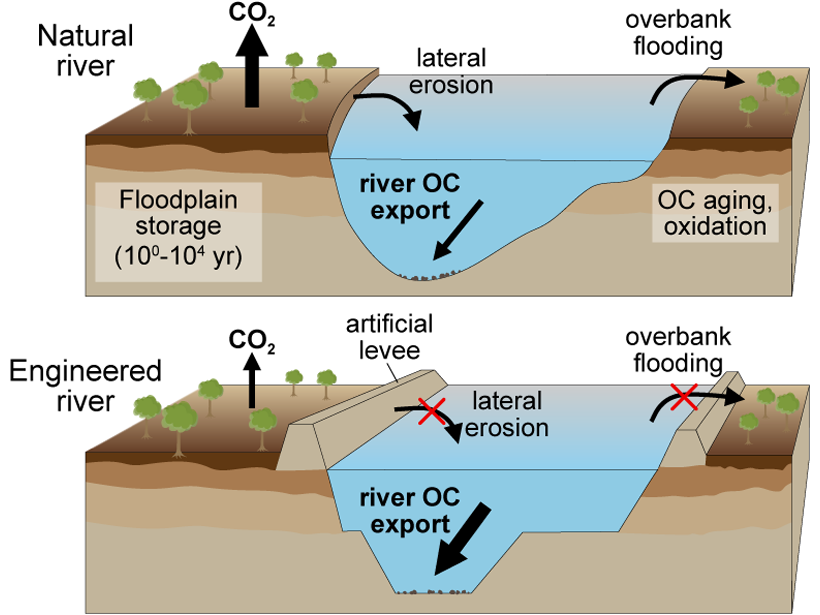Source: AGU Advances
Engineering of large rivers such as the Lower Mississippi to reduce flooding impacts river carbon cycling and the delivery of carbon to the ocean. Shen et al. [2021] compare the age of carbon retained in floodplain sediments compared to the depositional age for sediments that pre- and post-date major flood control construction. They find that, prior to river engineering, the aging and oxidative loss of organic carbon to decomposition following deposition on floodplains was greater than it is in modern sediments. This indicates that by bypassing losses associated with floodplain interaction, engineered rivers transport more and younger carbon in sediments. This previously overlooked process in river carbon cycling can be significant; the authors estimate a greater than 40 percent increase in the transport of organic carbon to the ocean. Repasch [2021] offers further perspective and context for this work in a Viewpoint in this issue.
Citation: Shen, Z., Rosenheim, B., Tornqvist, T. & Lang, A. [2021]. Engineered continental-scale rivers can drive changes in the carbon cycle. AGU Advances, 1, e2020AV000273. https://doi.org/10.1029/2020AV000273
—Susan Trumbore, Editor-in-Chief, AGU Advances
Text © 2021. The authors. CC BY-NC-ND 3.0
Except where otherwise noted, images are subject to copyright. Any reuse without express permission from the copyright owner is prohibited.

